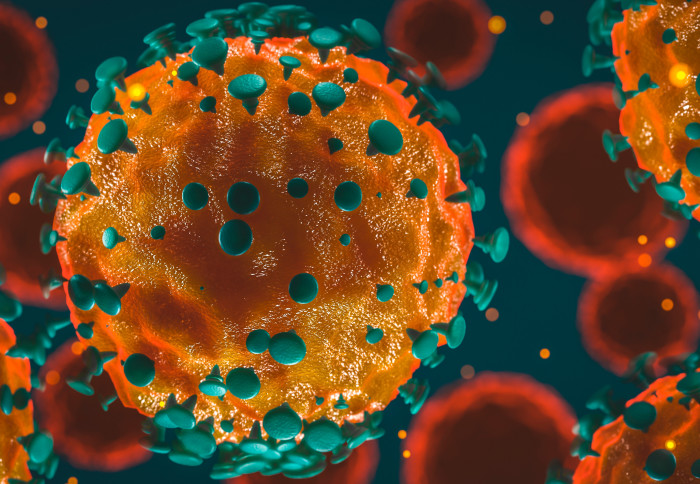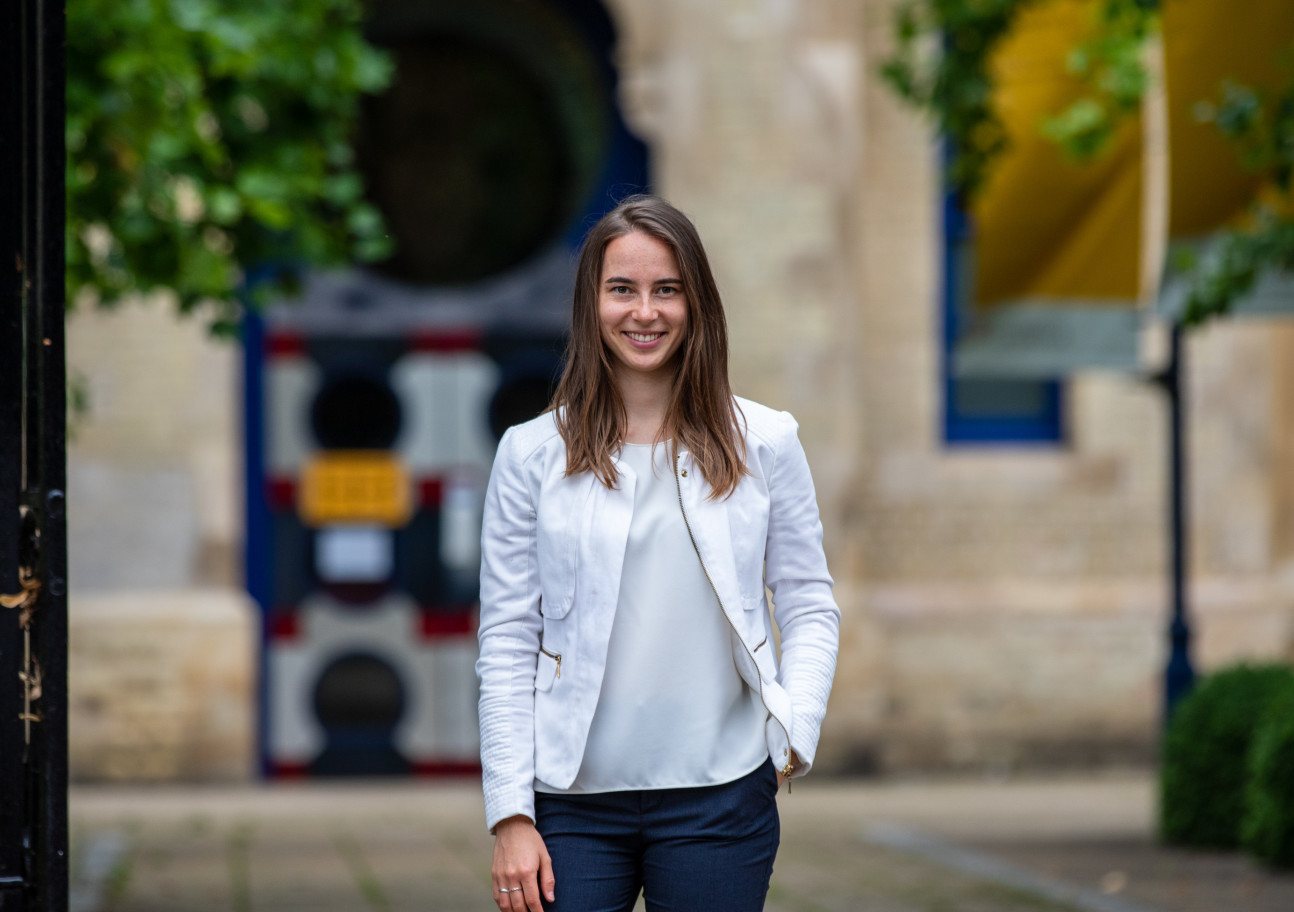Severe COVID and happier health: News from the College

Here’s a batch of fresh news and announcements from across Imperial.
From a new study into predicting severe COVID-19, to a new a headache and migraine management app, here is some quick-read news from across the College.
Predicting severed disease
 A new study from Imperial scientists has revealed biological pathways that drive severe COVID-19.
A new study from Imperial scientists has revealed biological pathways that drive severe COVID-19.
James Peters and colleagues from the Centre for Inflammatory Disease and NHS Renal and Transplant Centre measured around 500 proteins in the blood of kidney failure patients with COVID-19. The results, published in the journal eLife. showed severe COVID-19 has a protein ‘signature’ indicating activation of the immune system, increased immune cell communication, and lung and blood vessel injury.
Using machine learning and statistical modelling, they were able to identify protein markers that predict severe disease and death. Together with similar studies, these findings shed light on the biological pathways that drive severe COVID-19. By identifying proteins that are elevated in severe disease, these data provide a resource to help identify potential drug targets for the treatment of severe COVID-19.
Attitudes to location data
 Imperial’s Dr Yves-Alexandre de Montjoye is a member of the Cabinet Office’s Geospatial Commission which has launched a public dialogue to better understand public views about the use of location data.
Imperial’s Dr Yves-Alexandre de Montjoye is a member of the Cabinet Office’s Geospatial Commission which has launched a public dialogue to better understand public views about the use of location data.
Linking location data with data about people and the world can provide insights and new services that improve how we work, live and travel – but with these new applications come privacy and ethical considerations.
Supported by the UK Research and Innovation’s Sciencewise programme, Traverse, and the Ada Lovelace Institute, the conversation with the public will gather evidence on public perceptions of location data use. The findings will inform the development of the UK Geospatial Strategy.
Dr de Montjoye, of the Department of Computing, recently published a paper suggesting that privacy is not necessarily preserved if datasets are large enough, as previously thought. It also shows that metrics previously proposed were vastly underestimating the risk of re-identification.
Solar cell optimisation
 Ideally, solar cells should be the opposite of LEDs: while LEDs use electric charge to create light, solar cells generate electricity from light. However, next-generation organic solar cells are not as efficient as LEDs, as some energy is lost in the conversion process.
Ideally, solar cells should be the opposite of LEDs: while LEDs use electric charge to create light, solar cells generate electricity from light. However, next-generation organic solar cells are not as efficient as LEDs, as some energy is lost in the conversion process.
Researchers from Imperial, Polytechnic University of Milan and the University of Erlangen-Nuremberg recently created a solar cell that had high efficiency and low energy loss, allowing them to see the light emitted by the cell in response to electric current.
They then investigated why this happens, revealing how optimising a parameter called the charge transfer state energy makes the cell so efficient. The team say the method they used can help researchers predict which cell configurations can benefit from this type of optimisation, saving them time.
Read the full paper in Nature Communications: ‘Adjusting the Energy of Interfacial States in Organic Photovoltaics for Maximum Efficiency’
Happier health

Nicola Filzmoser, MSc Healthcare & Design student and co-founder of Happyr Health, has won a Women in Innovation Award from Innovate UK and KTN. She will be awarded £50,000, alongside a business support package of bespoke mentoring and coaching, to scale up and bring her business idea to market.
Happyr Health is a headache and migraine management app that uses storytelling and gaming to help manage chronic pain in children and young people. Nicola is currently part of the 2021 WE Innovate cohort, the College’s entrepreneurial programme for women entrepreneurs, ran by Imperial’s Enterprise Lab.
–
Want to be kept up to date on news at Imperial?
Sign up for our free quick-read daily e-newsletter, Imperial Today.

Article text (excluding photos or graphics) © Imperial College London.
Photos and graphics subject to third party copyright used with permission or © Imperial College London.
Reporter
Caroline Brogan
Communications Division
Andrew Youngson
Communications Division
Hayley Dunning
Communications Division
Kate Wighton
Communications Division